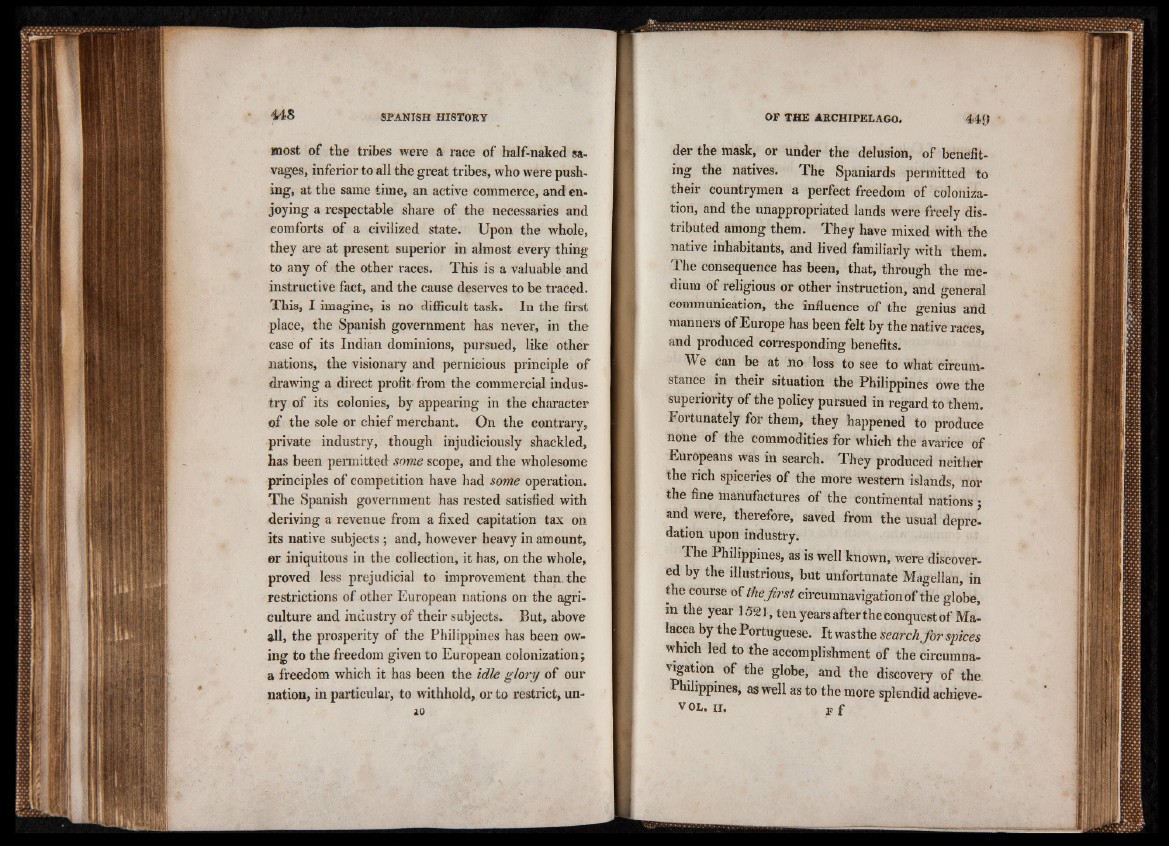
most of the tribes were a race of half-naked savages,
inferior to all the great tribes, who were pushing,
at the same time, an active commerce, and enjoying
a respectable share of the necessaries and
comforts of a civilized state. Upon the whole,
they are at present superior in almost every thing
to any of the other races. This is a valuable and
instructive fact, and the cause deserves to be traced.
This, I imagine, is no difficult task. In the first
place, the Spanish government has never, in the
case of its Indian dominions, pursued, like other
nations, the visionary and pernicious principle of
drawing a direct profit- from the commercial industry
of its colonies, by appearing in the character
of the sole or chief merchant. On the contrary,
private industry, though injudiciously shackled,
has been permitted some scope, and the wholesome
principles of competition have had some operation.
The Spanish government has rested satisfied with
deriving a revenue from a fixed capitation tax on
its native subjects ; and, however heavy in amount,
or iniquitous in the collection, it has, on the whole,
proved less prejudicial to improvement than the
restrictions of other European nations on the agriculture
and industry of their subjects. But, above
»11, the prosperity of the Philippines has been owing
to the freedom given to European colonization \
a freedom which it has been the idle glory of our
nation, in particular, to withhold, or to restrict, un-
¿0
der the mask, or under the delusion, of benefiting
the natives. The Spaniards permitted to
their countrymen a perfect freedom of colonization,
and the unappropriated lands were freely distributed
among them. They have mixed with the
native inhabitants, and lived familiarly with them.
The consequence has been, that, through the medium
of religious or other instruction, and general
communication, the influence of the genius and
manners of Europe has been felt by the native races,
and produced corresponding benefits.
We can be at no loss to see to what circumstance
in their situation the Philippines owe the
superiority of the policy pursued in regard to them.
Foitunately for them, they happened to produce
none of the commodities for which the avarice of
Europeans was in search. They produced neither
the rich spiceries of the more western islands, nor
the fine manufactures of the continental nations ;
and were, therefore, saved from the usual depredation
upon industry.
The Philippines, as is well known, were discovered
by the illustrious, but unfortunate Magellan, in
the course of the first circumnavigation of the globe,
in the year 1521, ten years after the conquest of Malacca
by the Portuguese. It wasthe search for spices
which led to the accomplishment of the circumnavigation^
of the globe, and the discovery of the.
Philippines, as well as to the more splendid achieve-
V 0L. II, F f